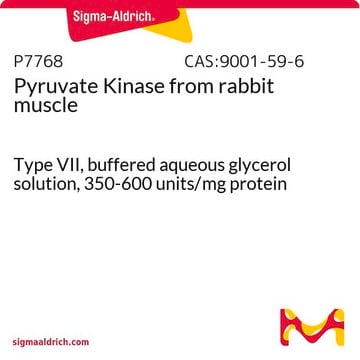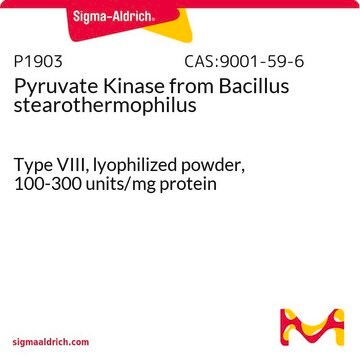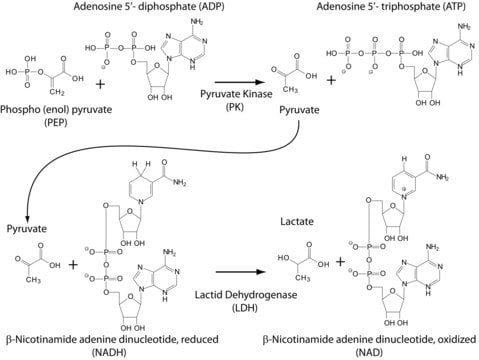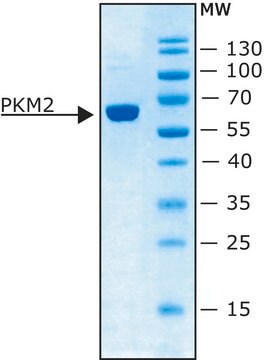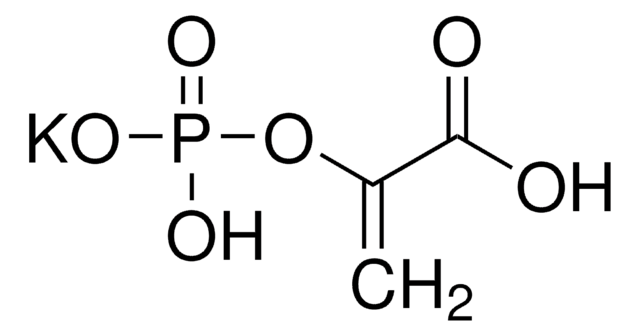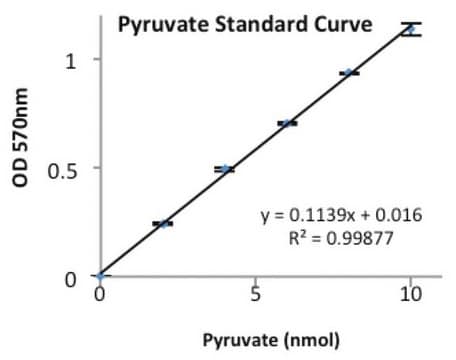SRP0189
Pyruvate kinase M2 Active from mouse
recombinant, expressed in E. coli, ≥90% (SDS-PAGE)
Synonym(s):
M2-PK tumor, OPA-interacting protein 3 (OIP-3), Pyruvate kinase 3 (PK3), Pyruvate kinase, muscle, Thyroid hormone-binding protein 1 (THBP1)
About This Item
Recommended Products
biological source
mouse
recombinant
expressed in E. coli
Assay
≥90% (SDS-PAGE)
form
aqueous solution
mol wt
58 kDa
packaging
pkg of 20 μg
storage condition
avoid repeated freeze/thaw cycles
concentration
>0.02 mg/mL
NCBI accession no.
UniProt accession no.
shipped in
dry ice
storage temp.
−70°C
Gene Information
mouse ... PKM2(18746)
General description
Murine Pyruvate kinase M2 (PKM2) (GenBank Accession No. NM_011099), amino acids 2-end, with N-terminal His tag, MW = 58kDa, expressed in an Escherichia coli expression system.
Application
Biochem/physiol Actions
Unit Definition
Physical form
Preparation Note
Choose from one of the most recent versions:
Certificates of Analysis (COA)
Don't see the Right Version?
If you require a particular version, you can look up a specific certificate by the Lot or Batch number.
Already Own This Product?
Find documentation for the products that you have recently purchased in the Document Library.
Articles
Warburg effect enhances glucose to lactate conversion in tumor cells, regardless of oxygen levels; impacting cancer metabolism since 1924.
Our team of scientists has experience in all areas of research including Life Science, Material Science, Chemical Synthesis, Chromatography, Analytical and many others.
Contact Technical Service
